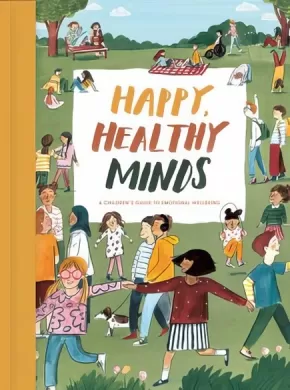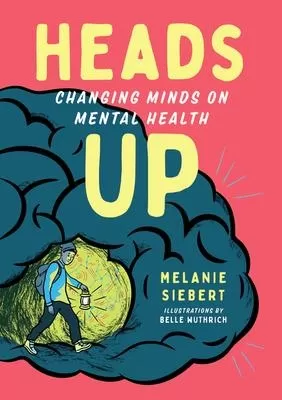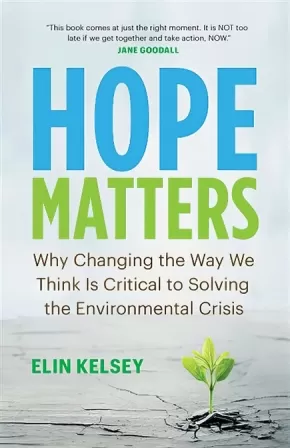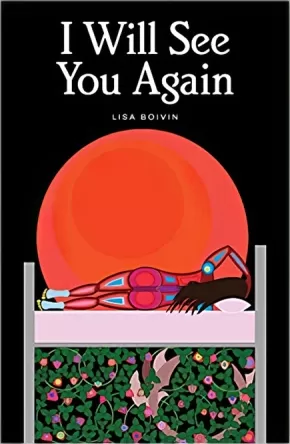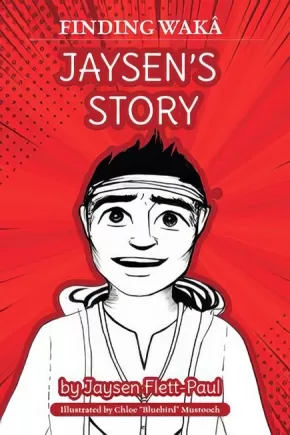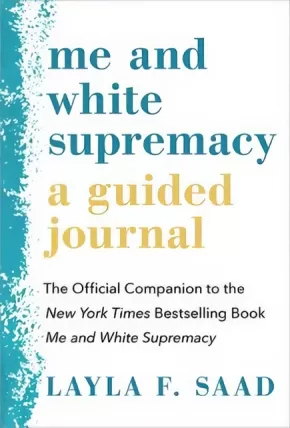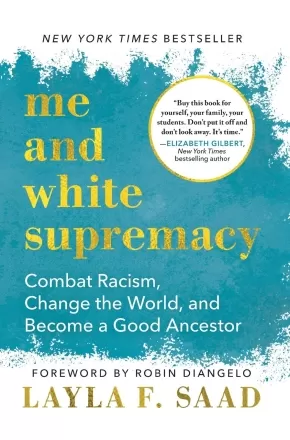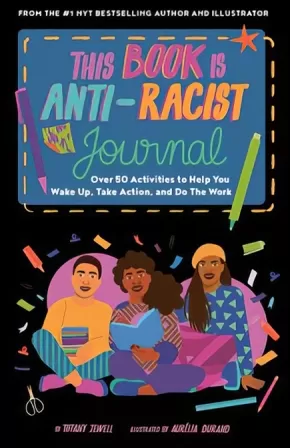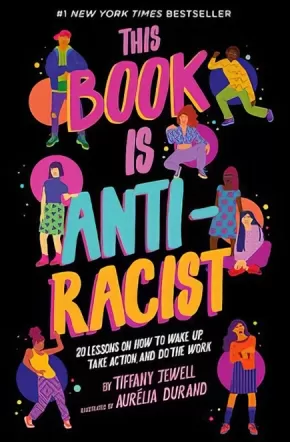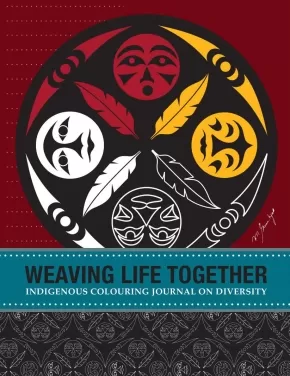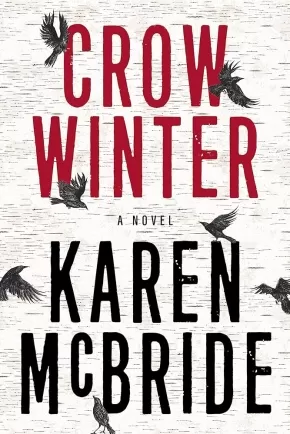
Healing and Wellness
121
-
135
of
222 Results;
Sort By
Go To
of 15
Happy, Healthy Minds: A Children's Guide to Emotional Wellbeing
$38.50
Format:
Hardcover
ISBN / Barcode: 9781912891191
Synopsis:
Synopsis:
An essential guide to emotional well-being for children; tackling everyday issues to facilitate happier, healthier lives. Our minds are beautifully complicated and brilliant machines. For much of our lives, these machines run efficiently with minimal maintenance. However, just like our other organs, they do require some proper attention every now and then. Recognizing this at an early age can only help as children progress into adulthood. Happy, Healthy Minds is a guide designed to help children become more aware of their emotional needs and examines a range of topics that might give their minds difficulties, for example: - when parents don’t seem to understand us.
Reviews
"Happy, Healthy Minds is an engrossing and effective read for children aged 10-16 and a must have resource for home educators." -School Reading List
"Cheerful illustrations interspersed amongst sensible matter of fact text go really well together in this title, a guide to emotional well-being for children. Informative without being preachy." -School Libraries Group
"This is a great resource to help children learn how to have a happier and healthier life especially in the way they think. My daughters loved this book. It’s definitely one we’ll return to again and again." -Netgalley review
Educator Information
Recommended for ages 10+
Additional Information
176 pages | 7.51" x 9.99"
Heads Up: Changing Minds on Mental Health
$24.95
Artists:
Format:
Paperback
Text Content Territories:
Indigenous;
ISBN / Barcode: 9781459819115
Synopsis:
Synopsis:
Featuring real-life stories of people who have found hope and meaning in the midst of life’s struggles, Heads Up: Changing Minds on Mental Health is the go-to guide for teenagers who want to know about mental health, mental illness, trauma and recovery. For too long, mental health problems have been kept in the shadows, leaving people to suffer in silence, or worse, to be feared, bullied or pushed to the margins of society where survival is difficult.
This book shines a light on the troubled history of thinking about and treating mental illness and tells the stories of courageous pioneers in the field of psychiatry who fought for more compassionate, respectful and effective treatments. It provides a helpful guide to the major mental health diagnoses along with ideas and resources to support those who are suffering. But it also moves beyond a biomedical focus and considers the latest science that shows how trauma and social inequality impact mental health. The book explores how mental health is more than just “in our heads” and includes the voices of Indigenous people who share a more holistic way of thinking about wellness, balancing mind, body, heart and spirit. Highlighting innovative approaches such as trauma-informed activities like yoga and hip-hop, police mental health teams, and peer support for youth, Heads Up shares the stories of people who are sparking change.
Educator Information
Recommended for ages 12+.
Keywords / Subjects / Themes: youth mental health, mental health, anxiety, recovery, ending stigma, Indigenous youth.
Additional Information
192 pages | 6.00" x 8.50"
Hope Matters: Why Changing the Way We Think Is Critical to Solving the Environmental Crisis
$22.95
Format:
Paperback
ISBN / Barcode: 9781771647779
Synopsis:
Synopsis:
Fears about climate change are fueling an epidemic of despair across the world: adults worry about their children’s future; thirty-somethings question whether they should have kids or not; and many young people honestly believe they have no future at all.
In the face of extreme eco-anxiety, scholar and award-winning author Elin Kelsey argues that our hopelessness—while an understandable reaction—is hampering our ability to address the very real problems we face. Kelsey offers a powerful solution: hope itself.
Hope Matters boldly breaks through the narrative of doom and gloom to show why evidence-based hope, not fear, is our most powerful tool for change. Kelsey shares real-life examples of positive climate news that reveal the power of our mindsets to shape reality, the resilience of nature, and the transformative possibilities of individual and collective action. And she demonstrates how we can build on positive trends to work toward a sustainable and just future, before it’s too late.
Reviews
“Like Elin, I have met countless people who have lost hope in many countries. Most were apathetic. Some were angry. Others depressed. Because, they told me, their future has been compromised and there was nothing they could do about it. But there is something they can do. This book comes at just the right moment. It brings a message of hope to help curb the negativity, the gloom and doom we are confronted with each day. It is NOT too late if we get together and take action, NOW.” —Jane Goodall, PhD, DBE, founder of the Jane Goodall Institute and UN Messenger of Peace
“Elin Kelsey is that rare creature—perhaps unique?—who writes with the acuity of a scientist, the grace of a poet, and the heart of a mother. After decades of fighting the good fight on behalf of her beloved oceans and their wildlife, she realizes that our conversations about environmentalism are often thwarted by overwhelming doubt and despair. Hope Matters is a clarion call to reawaken our spirits and renew our efforts, filled with engaging success stories, lyrical nature writing, and actionable ideas. 'We can recognize the urgency of the problem and be inspired by the resilience of other species,' Kelsey writes. This is a book to inspire resilience: for our children, for our leaders, for ourselves.”— Anne Nelson, Fellow, Arnold A. Saltzman Institute, Columbia University School for International and Public Affairs, and author of Suzanne’s Children: A Daring Rescue in Nazi Paris
“In a time when so much of the news on biodiversity is depressing, Dr. Elin Kelsey reminds us that there are good reasons to be hopeful. This book is a tonic in hard times.”—Claudia Dreifus, instructor in Columbia University’s Masters in Sustainability Management program and author of Scientific Conversations: Interviews on Science from the New York Times
Additional Information
240 pages | 5.50" x 8.50"
I Will See You Again
$25.00
Artists:
Format:
Hardcover
Text Content Territories:
Indigenous Canadian; First Nations; Dene; Deninu K’ue ;
ISBN / Barcode: 9781553798552
Synopsis:
Synopsis:
When the author learns of the death of her brother overseas, she embarks on a journey to bring him home. Through memories and dreams of all they shared together and through her Dene traditions, she finds comfort and strength. The lyrical art and story leave readers with a universal message of hope and love.
Educator Information
Recommended for ages 12+ (Mature Picture Book)
In this emotional illustrated picture book, author and illustrator Lisa Boivin tells the story of the loss of her brother and the journey with her Dene traditions to find comfort and the strength to move on from her grief.
This book explores themes of death, memory, remembrance, comfort, and specifically Dene perspectives on death.
The author's deeply personal story is revealed through exquisite artwork and text that are grounded in her family's Dene culture.
Lisa Boivin's experiences as an artist and bioethicist inform her story, expressed in the Indigenous way of passing knowledge through images.
Additional Information
56 pages | 6.50" x 10.00" | Colour illustrations throughout
Jaysen's Story
$9.95
Format:
Paperback
Text Content Territories:
Indigenous Canadian;
ISBN / Barcode: 9781926696829
Synopsis:
Synopsis:
Fourteen-year-old Jaysen Flett-Paul's true story of how Elders guided him through his first Sundance ceremony to heal the anger and grief stemming from his mother’s violent murder. It sensitively tackles the heart-breaking problem of suicide in Indigenous communities, an issue of great importance to this community and for communities across North America.
Educator & Series Information
Recommended for ages 13 to 18.
This book is part of the Finding Waka series.
Keywords / Themes: Ceremony, Elders, Family Issues, Grief, Anger, Loss, Spirituality
Additional Information
52 pages | 6.00" x 9.00" | Paperback
Me and White Supremacy - A Guided Journal: The Official Companion to the New York Times Bestselling Book Me and White Supremacy
$22.50
Format:
Paperback
Grade Levels: 12; University/College;
ISBN / Barcode: 9781728238555
Synopsis:
Synopsis:
Author Layla F. Saad wrote Me and White Supremacy to encourage people who hold white privilege to examine their (often unconscious) racist thoughts and behaviors through a unique, 28-day reflection process complete with journaling prompts. This guided journal, which includes the book's original weekly prompts and lots of space for note-taking and free-writing, is the perfect place to begin your antiracism journey. You will unpack:
Week One: White Privilege; White Fragility; Tone Policing; White Silence; White Superiority; White Exceptionalism
Week Two: Color Blindness; Anti-Blackness against Black Women, Black Men, and Black Children; Racist Stereotypes; Cultural Appropriation
Week Three: White Apathy; White Centering; Tokenism; White Saviorism; Optical Allyship; Being Called Out/Called In
Week Four: Friends; Family; Values; Losing Privilege; Your Commitments.
Awareness leads to action, and action leads to change. Create the change the world needs by creating change within yourself.
Additional Information
304 pages | 5.25" x 7.75"
Me and White Supremacy: Combat Racism, Change the World, and Become a Good Ancestor
$38.99
Format:
Hardcover
Grade Levels: 12; University/College;
ISBN / Barcode: 9781728209807
Synopsis:
Synopsis:
This eye-opening book challenges you to do the essential work of unpacking your biases, and helps white people take action and dismantle the privilege within themselves so that you can stop (often unconsciously) inflicting damage on people of color, and in turn, help other white people do better, too.
Based on the viral Instagram challenge that captivated participants worldwide, Me and White Supremacy takes readers on a 28-day journey, complete with journal prompts, to do the necessary and vital work that can ultimately lead to improving race relations.
Updated and expanded from the original workbook (downloaded by nearly 100,000 people), this critical text helps you take the work deeper by adding more historical and cultural contexts, sharing moving stories and anecdotes, and including expanded definitions, examples, and further resources, giving you the language to understand racism, and to dismantle your own biases, whether you are using the book on your own, with a book club, or looking to start family activism in your own home.
This book will walk you step-by-step through the work of examining:
- Examining your own white privilege
- What allyship really means
- Anti-blackness, racial stereotypes, and cultural appropriation
- Changing the way that you view and respond to race
- How to continue the work to create social change
Awareness leads to action, and action leads to change.
Reviews
"Layla Saad moves her readers from their heads into their hearts, and ultimately, into their practice. We won't end white supremacy through an intellectual understanding alone; we must put that understanding into action."—Robin DiAngelo, author of New York Times bestseller White Fragility
"Layla Saad is one of the most important and valuable teachers we have right now on the subject of white supremacy and racial injustice."—New York Times bestselling author Elizabeth Gilbert
"As an educator and writer in this space, I well understand the difficulties of productive discourse on topics like white supremacy, white fragility, and complicity. In Me and White Supremacy, Layla not only engages readers effectively – she hands them the tools they need to change themselves so that they can better the lives of millions of people worldwide." - Rachel Cargle, activist, writer, and lecturer
Additional Information
256 pages | 5.25" x 7.75"
Mother Earth Plants for Health & Beauty: Indigenous Plants, Traditions, and Recipes
$24.95
Format:
Paperback
Text Content Territories:
Indigenous Canadian; Métis;
ISBN / Barcode: 9781926696645
Synopsis:
Synopsis:
The recipes and traditions found in this book reflect the culture and the knowledge of the Medicine Wheel, featuring 26 edible and medicinal plants that you can gather in nature as Carrie and her grandmother did.
Create a luxurious and natural beauty regime by crafting your own lotions, soaps and teas from all-natural ingredients. From stress-busting teas and bath bombs to skin-smoothing lotions and creams, get vibrant skin and a healthy glow with Carrie’s creations based on her grandmother’s traditional teachings.
"I remember gathering plants and berries with my grandmother while she shared her stories and her deep understanding of traditional plants and their uses. My grandmother healed us with her medicinal plants—everything from pink eye, sore throats, stomach ailments, aches and pains, and infections. She’d make us these beautiful, healing teas." –Carrie
Additional Information
144 pages | 6.00" x 7.75"
Niqiliurniq: A Cookbook from Igloolik
$24.95
Format:
Paperback
Text Content Territories:
Indigenous Canadian; Inuit;
ISBN / Barcode: 9781772272673
Synopsis:
Synopsis:
“Food is life. Food is the key to vitality, goodness, happiness, and a strong body and mind.”
Compiled by five women living in Igloolik, Nunavut, this collection of recipes brings together healthy traditional country foods—like seal, Arctic char, and caribou—with store-bought produce to create delicious meals that can be an alternative to pre-packaged foods. With details on food safety and storage, as well as information on how to build a healthy, nutritious diet, this book will help even novice cooks feel empowered to begin cooking from scratch at home.
With tasty recipes from land and sea—from Arctic char pizza to caribou chilli—this beautifully photographed cookbook provides wholesome, hearty meals that will become family favourites for years to come.
Additional Information
114 pages | 7.00" x 10.00" | colour photographs | Paperback
The Barren Grounds (PB)
$12.99
Format:
Paperback
Text Content Territories:
Indigenous Canadian; First Nations; Cree (Nehiyawak); Swampy Cree ;
ISBN / Barcode: 9780735266124
Synopsis:
Synopsis:
Narnia meets traditional Indigenous stories of the sky and constellations in an epic middle-grade fantasy series from award-winning author David Robertson.
Morgan and Eli, two Indigenous children forced away from their families and communities, are brought together in a foster home in Winnipeg, Manitoba. They each feel disconnected, from their culture and each other, and struggle to fit in at school and at their new home -- until they find a secret place, walled off in an unfinished attic bedroom. A portal opens to another reality, Askí, bringing them onto frozen, barren grounds, where they meet Ochek (Fisher). The only hunter supporting his starving community, Misewa, Ochek welcomes the human children, teaching them traditional ways to survive. But as the need for food becomes desperate, they embark on a dangerous mission. Accompanied by Arik, a sassy Squirrel they catch stealing from the trapline, they try to save Misewa before the icy grip of winter freezes everything -- including them.
Reviews
"David A. Robertson has written such a fine, beautiful novel. He manages to combine hard truths about our history with a Narnia-like fantasy, sweeping us into the world of the story while opening our hearts as well." -- Susin Nielsen, author of We Are All Made of Molecules and No Fixed Address
“This is a book that is rich in its characterization, evocative in its descriptions, and skillful in its weaving together of traditions of the past and life in the present.” --CM Magazine
"This middle-grade fantasy deftly and compellingly centers Indigenous culture." --STARRED REVIEW, Kirkus Reviews
"The Barren Grounds: The Misewa Saga is a story about two Indigenous children forced away from their families to a foster home in Winnipeg, Manitoba. Struggling to fit, the two children find a space in the attic that opens a portal into another realm. They learn the traditional ways to survive and embark on a dangerous mission there." - The Dalai Lama Center
Educator & Series Information
For ages 10+ (middle-grades).
This is Book 1 of the Misewa Saga. Narnia meets traditional Indigenous stories of the sky and constellations in this epic middle-grade fantasy series from award-winning author David Robertson.
This book is available in French: La saga Misewa: N° 1 - Les terres isolées.
Additional Information
256 pages | 5.44" x 8.25" | Jacket art and interior illustrations Natasha Donovan | Paperback
This Book Is Anti-Racist Journal: Over 50 Activities to Help You Wake Up, Take Action, and Do The Work
$16.99
Artists:
Format:
Paperback
ISBN / Barcode: 9780711263031
Synopsis:
Synopsis:
An official companion to the #1 New York Times bestseller, this guided journal contains more than 50 activities to support your anti-racism journey.
In This Book Is Anti-Racist, Tiffany Jewell and Aurélia Durand gave us an essential volume to understand anti-racism. Now, in the journal companion, understand your anti-racist self and dive further into the work. Within the vibrantly illustrated pages, you will find some familiar information along with new reflections and prompts to go deeper.
This anti-racist toolkit gives you space to learn and grow through activities centered around identity, history, family, your universe, disruption, self-care, privilege, art, expression, and much more, including:
- Create a map of you by drawing, collaging, sticking, and painting your many and favorite social and personal identities
- Discover how diverse your universe is by writing down the races and ethnicities of the people in your life
- Design your own buttons that share your beliefs, values, and what you stand for
- Write a letter to your future self to share your dreams and how you are growing into your anti-racism
- Make a plan and be ready for scenarios when you are confronted by racist comments, actions, and policies
- Brainstorm your anti-racist vision of what our communities will look like without racism and how we can get there
“Continue to stay awake, start taking action, and always lean into the work of disrupting racism. Together, we can abolish the system that continues to misuse and abuse power and collectively work for anti-racism.” —Tiffany Jewell
Reviews
"This journal gives children (and adults) tools to learn about identity, privilege, history, family, and much more. Through a range of activities, you can plan for future scenarios where you may come across racism and how you will handle it. A brilliant book for older children, teenagers and adults, it would be great for use in schools too!”—Diverse Kids Books Blog
Educator Information
Recommended for ages 11 to 15.
Find the accompanying resource here: This Book Is Anti-Racist: 20 Lessons on How to Wake Up, Take Action, and Do the Work
Additional Information
96 pages | 5.60" x 8.55" | Paperback
This Book Is Anti-Racist: 20 Lessons on How to Wake Up, Take Action, and Do the Work
$19.99
Artists:
Format:
Paperback
Text Content Territories:
Indigenous American;
ISBN / Barcode: 9780711245211
Synopsis:
Synopsis:
Who are you? What is racism? Where does it come from? Why does it exist? What can you do to disrupt it? Learn about social identities, the history of racism and resistance against it, and how you can use your anti-racist lens and voice to move the world toward equity and liberation.
“In a racist society, it’s not enough to be non-racist—we must be ANTI-RACIST.” —Angela Davis
Gain a deeper understanding of your anti-racist self as you progress through 20 chapters that spark introspection, reveal the origins of racism that we are still experiencing, and give you the courage and power to undo it. Each lesson builds on the previous one as you learn more about yourself and racial oppression. An activity at the end of every chapter gets you thinking and helps you grow with the knowledge. All you need is a pen and paper.
Author Tiffany Jewell, an anti-bias, anti-racist educator and activist, builds solidarity beginning with the language she chooses—using gender neutral words to honor everyone who reads the book. Illustrator Aurélia Durand brings the stories and characters to life with kaleidoscopic vibrancy.
After examining the concepts of social identity, race, ethnicity, and racism, learn about some of the ways people of different races have been oppressed, from Indigenous Americans and Australians being sent to boarding school to be “civilized” to a generation of Caribbean immigrants once welcomed to the UK being threatened with deportation by strict immigration laws.
Find hope in stories of strength, love, joy, and revolution that are part of our history, too, with such figures as the former slave Toussaint Louverture, who led a rebellion against white planters that eventually led to Haiti’s independence, and Yuri Kochiyama, who, after spending time in an internment camp for Japanese Americans during WWII, dedicated her life to supporting political prisoners and advocating reparations for those wrongfully interned.
Learn language and phrases to interrupt and disrupt racism. So, when you hear a microaggression or racial slur, you'll know how to act next time.
This book is written for EVERYONE who lives in this racialized society—including the young person who doesn’t know how to speak up to the racist adults in their life, the kid who has lost themself at times trying to fit into the dominant culture, the children who have been harmed (physically and emotionally) because no one stood up for them or they couldn’t stand up for themselves, and also for their families, teachers, and administrators.
With this book, be empowered to actively defy racism and xenophobia to create a community (large and small) that truly honors everyone.
Educator Information
Recommended for ages 11 to 15.
Some, but limited, Indigenous content.
A journal filled with activities is also available: This Book Is Anti-Racist Journal: Over 50 Activities to Help You Wake Up, Take Action, and Do The Work
Additional Information
160 pages | 5.15" x 7.75" | Colour Illustrations | Paperback
Weaving Life Together: Indigenous Colouring Journal on Diversity
$12.99
Artists:
Format:
Paperback
Text Content Territories:
Indigenous Canadian;
ISBN / Barcode: 9781554766253
Synopsis:
Synopsis:
Each page offers traditional and cultural insights into the natural and supernatural worlds. Thought-provoking questions are intended to deepen personal development and our relationships with others. The corresponding animal on the next page allows readers to take the time to further reflect and connect with their creativity as they colour in the animals.
Additional Information
32 Pages
Crow Winter
$24.99
Format:
Paperback
Text Content Territories:
Indigenous Canadian; First Nations;
Grade Levels: 12; University/College;
ISBN / Barcode: 9781443459679
Synopsis:
Synopsis:
Nanabush. A name that has a certain weight on the tongue—a taste. Like lit sage in a windowless room or aluminum foil on a metal filling.
Trickster. Storyteller. Shape-shifter. An ancient troublemaker with the power to do great things, only he doesn’t want to put in the work.
Since coming home to Spirit Bear Point First Nation, Hazel Ellis has been dreaming of an old crow. He tells her he’s here to help her, save her. From what, exactly? Sure, her dad’s been dead for almost two years and she hasn’t quite reconciled that grief, but is that worth the time of an Algonquin demigod?
Soon Hazel learns that there’s more at play than just her own sadness and doubt. The quarry that’s been lying unsullied for over a century on her father’s property is stirring the old magic that crosses the boundaries between this world and the next. With the aid of Nanabush, Hazel must unravel a web of deceit that, if left untouched, could destroy her family and her home on both sides of the Medicine Wheel.
Reviews
“Full of spirit, love, mystery and good medicine, Crow Winter tells the story of Hazel and one very tricky little crow. Karen McBride’s debut novel ambitiously and successfully balances all these things creating a world and story that will stay with you after you have turned that last page.” - Katherena Vermette, award-winning author of The Break
"Algonquin Anishinaabe writer Karen McBride's debut is about a young woman who moves home to her First Nation reserve after losing her father. Dealing with grief and while memories are flooding her thoughts, Hazel's dreams are disturbed by her trickster kin, a crow, Nanabush.
As she starts to unravel her father's history with a local quarry, the crow is a constant companion and guides her to find the truth. The physical and spiritual worlds are seamlessly woven together, and we are taken inside the experience Hazel is having reconciling her truth with her father's and the imposing facts of the real world.
A lovely story full of spirit and imagery that stays with you long after the final page. Karen is a writer to watch." - Sandy, indieCHOICE
Additional Information
352 pages | 5.50" x 8.50"
Freedom of Expression: Deal with it before you are censored
$24.95
Artists:
Format:
Hardcover
ISBN / Barcode: 9781459413931
Synopsis:
Synopsis:
Can you say anything you want? Should you?
Everyone has rights but navigating your rights can be difficult. You have the right to freedom of expression but there are many places where this freedom is limited by laws, rules and regulations, or even customs such as good manners.
By exploring the viewpoints of The Censor, The Speechmaker and The Witness, this book will help you navigate issues of how to express identity and opinion.
- Freedom of Expression 101 defines rights, freedom of expression and censorship
- Dear Conflict Counsellor offers real-life problems and solutions
- Quizzes test your ability to identify censorship and how to deal with issues around freedom of expression
- A resource guide puts helpful organizations, books and websites at your fingertips
Educator & Series Information
The Deal With It series helps adolescents cope with conflicts in everyday life and promote peaceful homes, schools, and communities.
Recommended Ages: 9-14
Fry Reading Level [grade]: 5.4
Lexile Reading Level: 800L
Additional Information
32 pages | 8.50" x 11.00"
Sort By
Go To
of 15

